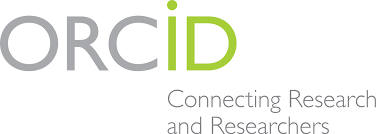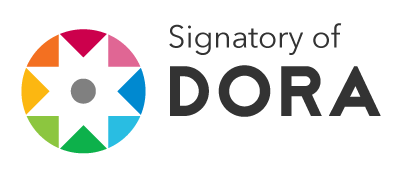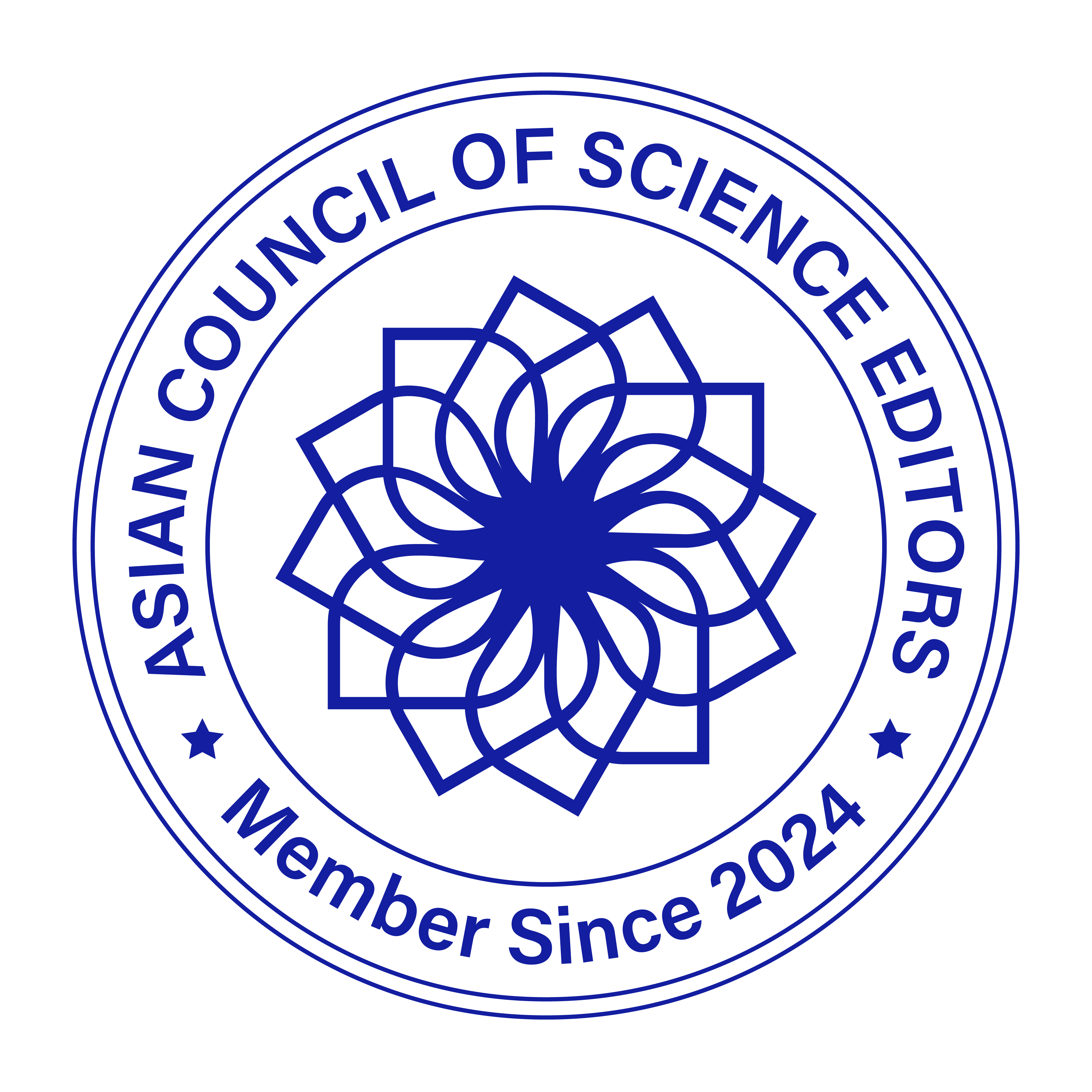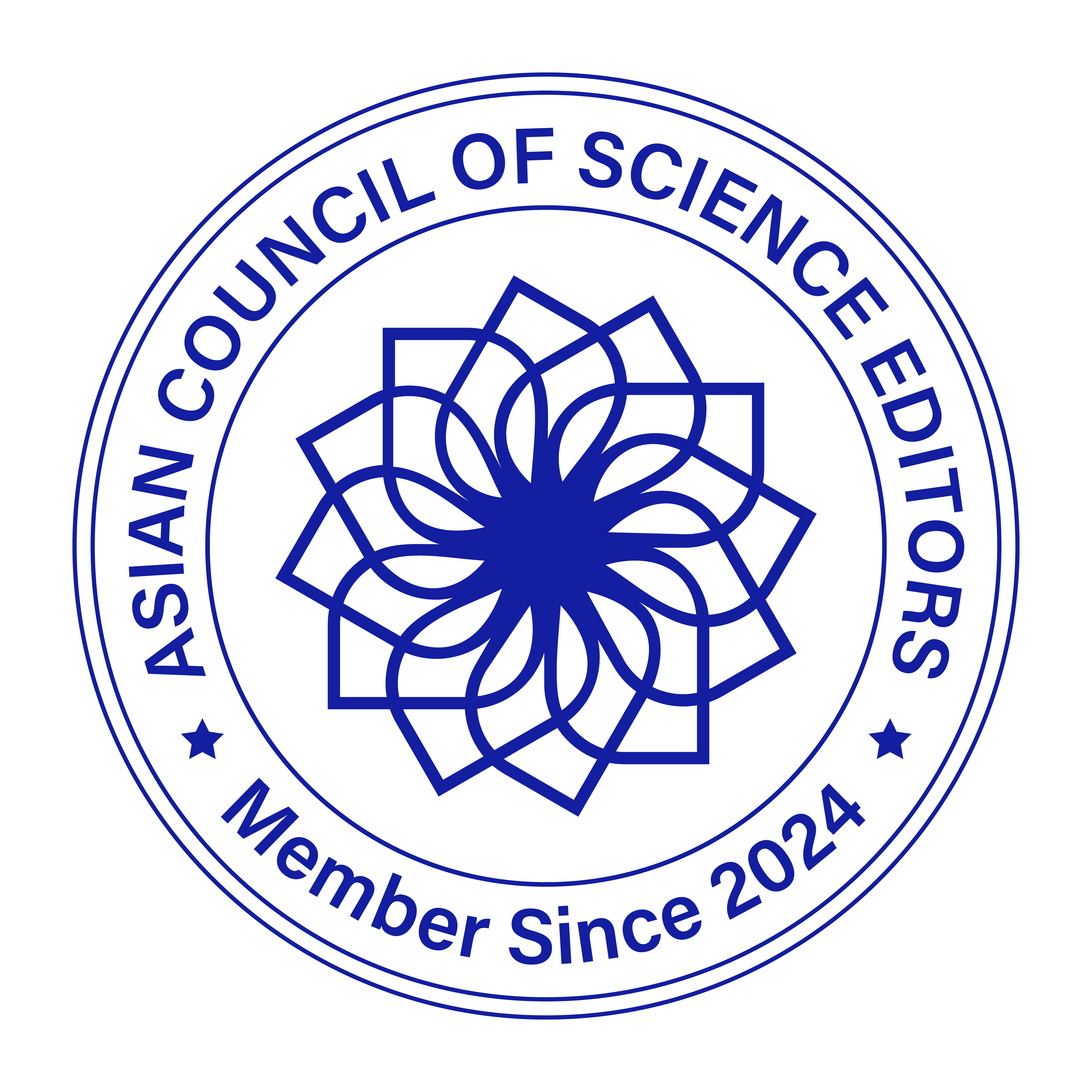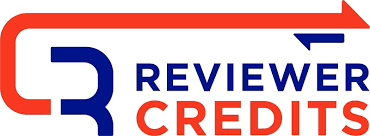3049-0677 (Online)
Publication Ethics & Malpractice Statement
Editorial Board
- The Editorial Board upholds the highest ethical standards in research and publishing.
- All publication decisions are made independently, without external influence.
- Editors maintain confidentiality, ensure the integrity of peer review, and act fairly and promptly.
- Decisions are based solely on scientific merit, originality, and relevance—regardless of the authors’ race, gender, nationality, or beliefs.
Associate Editors
- Support the entire peer review process, from initial checks to final decision-making.
- Maintain strict confidentiality and ensure reviewer-anonymity in the double-blind review system.
- Assist in selecting suitable section editors and reviewers and ensure a timely review process.
Section Editors
Section Editors play a vital role in maintaining the quality, integrity, and ethical standards of the journal. Their responsibilities include:
- Manuscript Oversight: Evaluating submitted manuscripts within their assigned section, ensuring the content aligns with the journal’s scope and meets scholarly standards.
- Ethical Compliance: Ensuring that all manuscripts adhere to the journal's publication ethics, including plagiarism checks, proper authorship attribution, conflict of interest disclosures, and ethical approval for studies involving humans or animals.
- Peer Review Coordination: Selecting qualified and unbiased peer reviewers, managing the peer review process, and ensuring it remains confidential, fair, and timely.
- Decision Making: Making initial recommendations and final decisions on manuscripts, based on reviewers’ feedback and their own evaluation, while remaining impartial and transparent.
- Conflict Resolution: Addressing any ethical concerns or disputes related to submitted or published content, in consultation with the Editor-in-Chief and the editorial board.
- Editorial Contribution: Advising on editorial policy, contributing to special issues, and supporting the overall development and reputation of the journal.
- Section Editors are responsible for ensuring that plagiarism checks are conducted and for taking appropriate editorial action if concerns arise.
Reviewers
- Follow a double-blind peer review process with integrity and impartiality.
- Provide constructive and timely feedback to improve manuscript quality.
- Maintain confidentiality and disclose any conflicts of interest before reviewing.
Authorship and Contribution Policy
The manuscript must be original, unpublished, and not under consideration by any other journal or publication. All listed authors must have made a significant intellectual contribution to the research and writing of the manuscript. The corresponding author is responsible for ensuring that all co-authors have seen and approved the final version of the manuscript prior to submission.
Guest, ghost, and gift authorships are considered unethical and are strictly prohibited.
- Conflict of Interest Disclosure
All authors, reviewers, and editors must disclose any financial or personal relationships that could inappropriately influence their work. The journal requires a conflict-of-interest statement to be included with each submission.
- Research Ethics and Consent
Manuscripts reporting studies involving humans or animals must include a statement confirming that the research was approved by an appropriate ethics committee and conducted in accordance with international standards (e.g., Declaration of Helsinki). Informed consent must be obtained and documented where applicable.
- Data Availability and Reproducibility
Authors are encouraged to provide access to raw data, code, or supplementary materials that support the results of their study. This promotes transparency and enables replication of research.
- Peer Review Policy
The journal follows a double-blind peer review process. Reviewers are selected based on expertise and lack of conflict of interest. Reviews are expected to be objective, constructive, and confidential. Decisions on manuscripts are based solely on scholarly merit, originality, and relevance to the journal’s scope.
- Retraction and Correction Policy
The journal is committed to correcting the scholarly record when necessary. Retractions, corrections, or expressions of concern will be issued in cases of serious errors, plagiarism, data fabrication, or ethical misconduct.
All such cases are handled in accordance with the COPE Retraction Guidelines.
- Archiving and Preservation
The journal ensures long-term digital preservation of all published content through PKP PN repositories.
- Editorial Independence and Transparency
Editorial decisions are made independently of the publisher and advertisers. The editorial team upholds academic freedom and ethical publishing practices without bias.
Conflict of Interest, Human & Animal Rights, and Informed Consent
- Conflict of Interest: All parties must disclose any conflicts that could affect objectivity. Undisclosed conflicts may result in withdrawal or rejection.
- Human Subjects: Research involving humans must be approved by an Institutional Review Board (IRB), with informed consent obtained and documented.
- Animal Research: Must be approved by an ethical committee and follow international guidelines for animal care and use, emphasizing replacement, reduction, and refinement (3Rs).
Plagiarism Policy
The journal strictly adheres to a zero-tolerance policy towards plagiarism. All submitted manuscripts are screened using Turnitin plagiarism detection software before the peer review process.
Authors must ensure that their work is original and that any content reproduced from other sources (including figures, tables, or text) is properly cited and, where necessary, permission has been obtained.
Types of unethical practices include but are not limited to:
- Direct plagiarism: Copying text or ideas from another source without proper citation.
- Self-plagiarism: Republishing the author's own previously published work without proper attribution or justification.
- Mosaic plagiarism: Borrowing phrases from a source without quotation marks or finding synonyms for the author’s language while keeping to the same general structure and meaning.
- Inaccurate authorship attribution: Failing to acknowledge others’ contributions.
Manuscripts found to contain significant levels of plagiarism (generally above 10–15%) will be rejected outright. If plagiarism is detected after publication, the article may be retracted, and appropriate actions will be taken in line with COPE (Committee on Publication Ethics) guidelines.
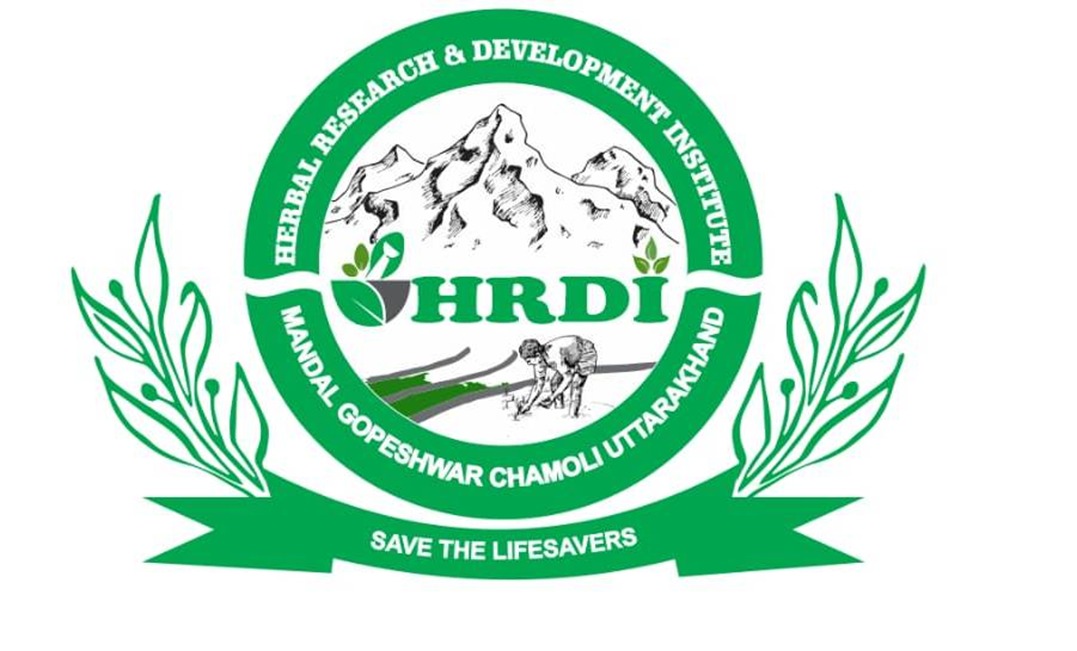

![Announcement: Special Conference Issue of Phytotalks We are pleased to announce that Phytotalks will publish a special issue featuring select peer-reviewed papers from the Third International Conference on Plant Functional Biology, an esteemed international gathering of experts in Plant Science]. This special issue will highlight cutting-edge research and innovative developments presented at the conference, offering our readers valuable insights into the latest advancements in the field. Stay tuned for this upcoming edition, which reflects our continued commitment to showcasing high-quality, impactful research.](https://phytotalks.com/public/site/images/afrozalam/img-20250701-wa0010.jpg)














